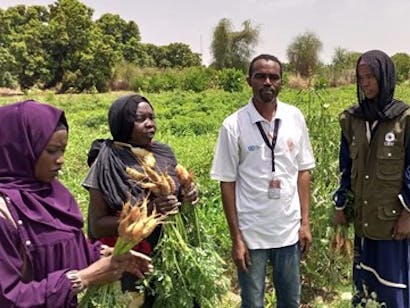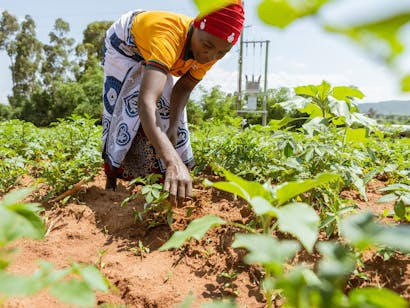Regina, a Timorese woman with a voice
It is widely believed that the overall development of a country depends on the maximum utilization of its people, both men and women. This means that women should actively participate as from the very beginning stage of development planning discussions.

The situation in Indonesia
It is indispensable to accommodate this and take into account women’s perspectives and needs, which eventually positively contributes to achieving the goals of inclusive development. Unfortunately, in most regions of Indonesia, opportunities for women to be actively involved in development planning discussion at all levels is limited compared to the opportunity given to men. Nusa Tenggara Timor (NTT) province is one of the examples.
Women’s concerns
Most Timorese people believe in the system of values and patriarchal culture, in which is the position of women is subordinate to men. Women are identified with domestic life and public affairs are viewed as male-dominated activity. Therefore, women are not accustomed to engage in public discussions. Even if in some cases Timorese women attend the village development planning discussion, they are often only busy preparing for the refreshment, or just sit and passively see the discussion. They are silent because of a few reasons, which are the lack of confidence or shyness to express their ideas or opinion, the feel incomplete because of the limitation of knowledge and skills regarding village development planning, and due to the traditional patriarchal system, they believe that outspoken women are not accepted. This practice leads to a low level of women’s presence and active participation in the forum of village development planning, be it at hamlet, village, sub-district, or district level. The women’s concerns and interests are often being left unspoken or unnoticed.
Partners for Resilience (PfR) Indonesia is aware of this situation. In accordance with the overall objective of PfR programme, the team strives for resilience building of local communities across Indonesia using the Integrated Risk Management approach, in a gender responsive manner. Therefore PfR Indonesia is building women capacity through a series of trainings related to village governance.
Embung
This ongoing effort brings something interesting, though might be so simple and small. A different thing happened in Kupang district (NTT Province), to be exact in sub-district of Fatuleu, on 6th February 2018. In the event of the district development planning discussion, the Kupang District Regent, Dr. Ayub Titu Eki gave the opportunity for a few attendees to express their needs and concerns. Surprisingly, a woman stakeholder, from Oelbitino village (one of project areas of PfR Indonesia) raised her hand. Mrs. Regina said that she wants to be a farmer. But, the first and foremost problem is her village is the water shortage in the period of the second growing season (drought season, usually during May to September). She expressed she expects the government to solve this problem by building a number of artificial lakes, locally called “embung” to store water reserves (groundwater and unused rain water). In addition, she told that she expects the government to renovate a school building in her village as it is presently in a very bad condition. Furthermore she stressed the importance of repairing the broken road.

Impact
Regina became the first female villager who actively engaged in the discussion and freely expressed her opinion in this meeting which was full of top government officials and very male-dominated. Surely, all attendees’ eyes instantly looked at her. They were surprised and amazed, and her words really had an impact: her aspiration and concerns were promptly responded. An action plan was developed to solve the issues raised by her. To deal with the water shortage, the district government plans to build more embungs. As for school renovation, the government will soon execute the renovation. Lastly, regarding the road repairment, technical staff will survey and assess the current condition and then will coordinate with village officials for the actual repair.
What Regina did might be considered as a small change and insignificant. But, by boldly and bravely raising her concerns in a public forum, she made a huge difference.
By Elfrid Saneh & Shanti Sasmitaningsari, CARE International Indonesia


